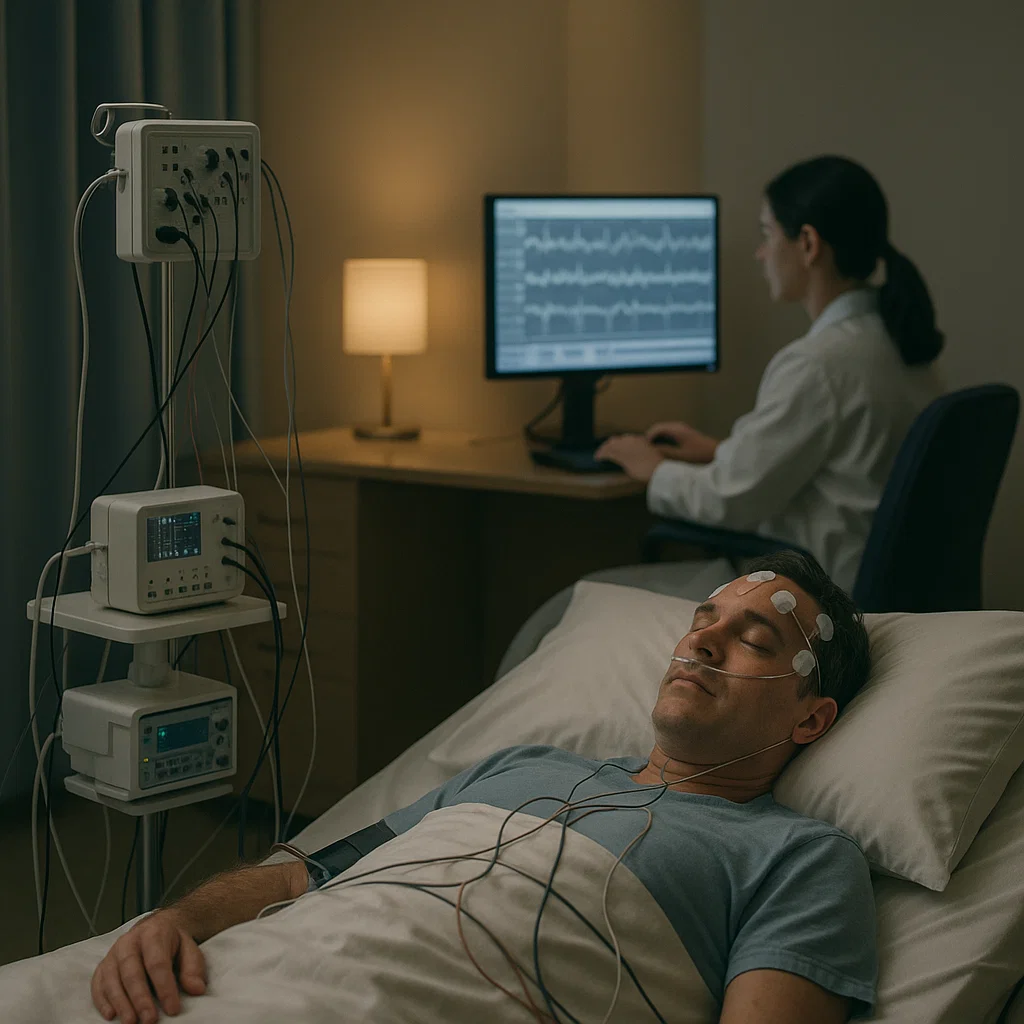Subtotal ₹0.00
Table of Contents
ToggleSleep Studies: The Key to Diagnosing Hidden Sleep Disorders and Transforming Your Health
Sleep studies are essential diagnostic tools that can uncover hidden sleep disorders affecting millions of Americans. Sleep is not merely relaxation; it’s the foundation of your overall health and wellbeing. Yet countless people suffer from undiagnosed sleep disorders that silently sabotage their health. From sleep apnea to insomnia, these conditions can drastically impact your quality of life without you even realizing it. A professional sleep study (polysomnography) can reveal these hidden sleep troubles and help restore your peaceful, restorative sleep patterns.
In this comprehensive guide, we’ll explore why sleep studies are so significant, what valuable insights they can provide, and the transformative ways they can enhance your overall health, vitality, and quality of life.
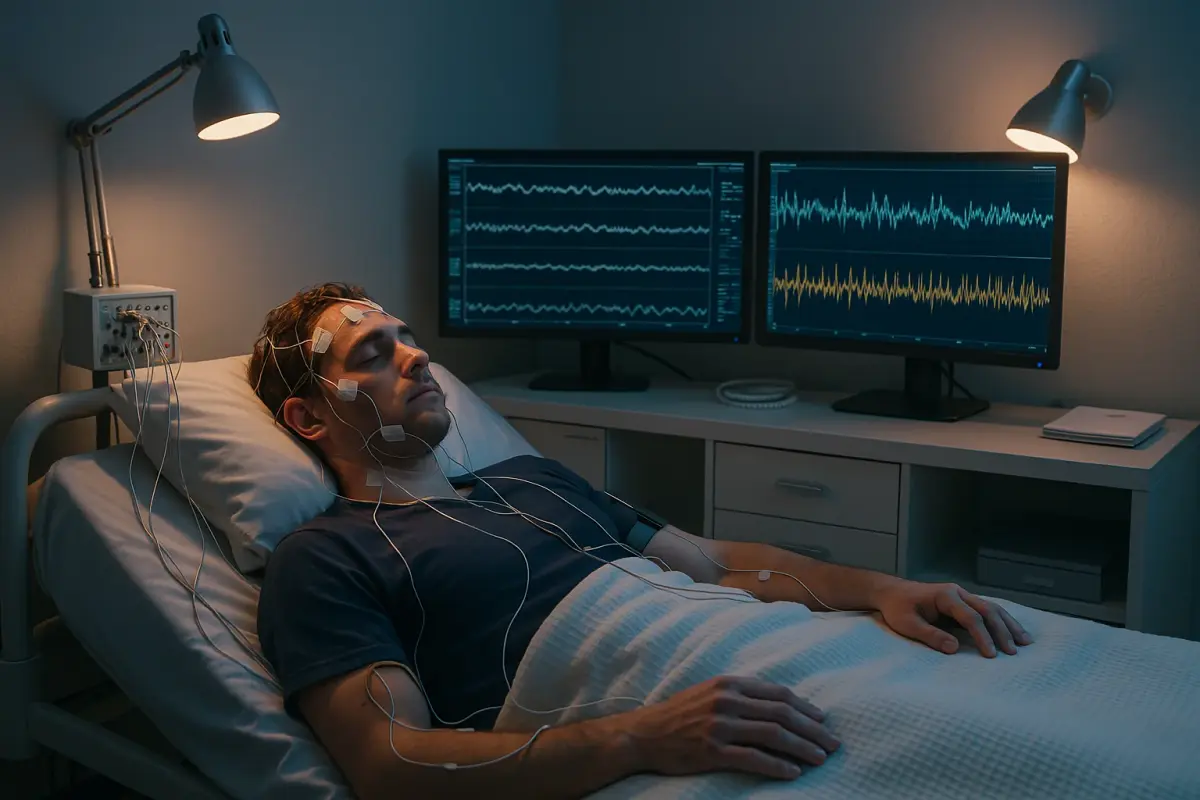
What Exactly Are Sleep Studies and How Do They Work?
A sleep study is a comprehensive clinical evaluation that records your sleeping patterns, heart rate, breathing, blood oxygen levels, brain activity, and body movements throughout the night. This non-invasive procedure provides invaluable data about what happens to your body during sleep.
These studies can be conducted in specialized sleep disorder clinics, hospitals, or even in the comfort of your own bedroom using sophisticated portable testing equipment. The data collected helps sleep specialists identify various sleep disorders that might be disrupting your rest.
Quality sleep is not a luxury—it’s a necessity. Understanding your sleep patterns through proper assessment can be the first step toward reclaiming your health and vitality.
Dr. Alexandra Winters, Sleep Medicine Specialist
Common Sleep Disorders Diagnosed Through Sleep Studies
- Obstructive Sleep Apnea (OSA) – A serious condition where breathing repeatedly stops and starts during sleep, often accompanied by loud snoring.
- Insomnia – Persistent difficulty falling asleep or staying asleep despite adequate opportunity.
- Restless Leg Syndrome (RLS) – An irresistible urge to move your legs, typically accompanied by uncomfortable sensations.
- Narcolepsy – A neurological disorder causing excessive daytime sleepiness and sudden sleep attacks.
- Periodic Limb Movement Disorder – Involuntary limb movements during sleep that can disrupt sleep quality.
- REM Sleep Behavior Disorder – A condition where you physically act out vivid dreams during REM sleep.
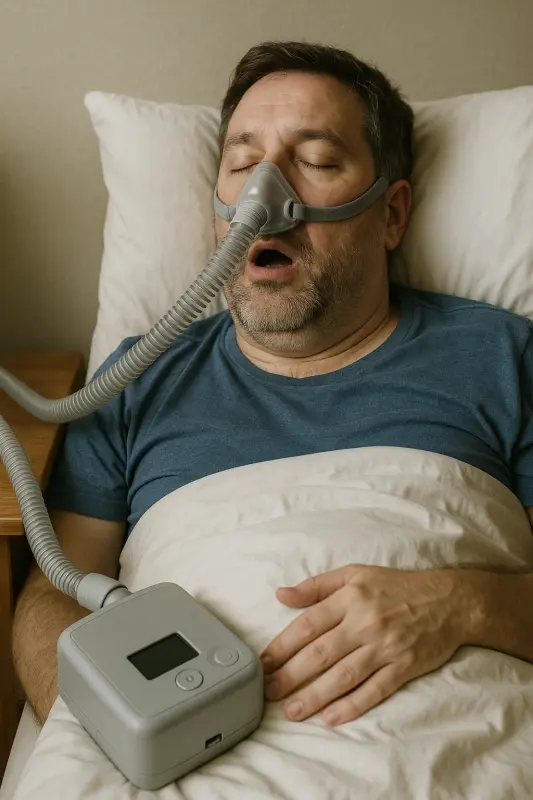
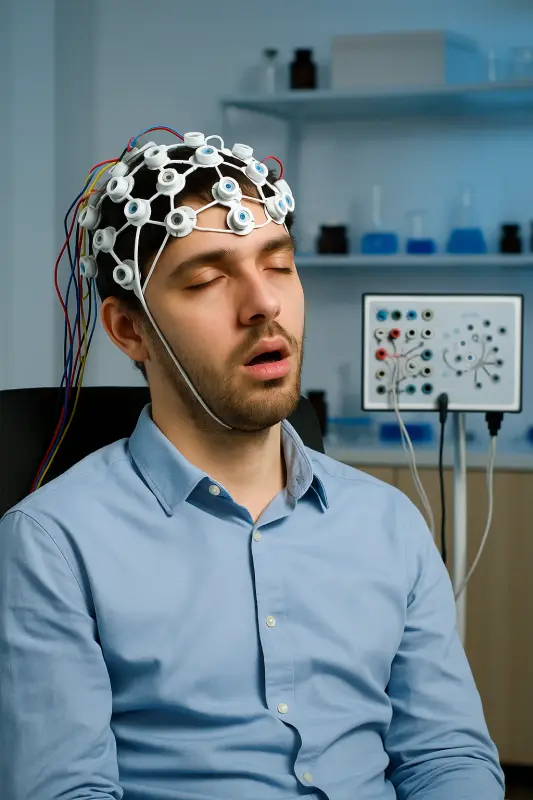
Why Should You Consider a Sleep Study?
If you’re experiencing any of these symptoms, a sleep study could be transformative for your health:
- Chronic fatigue despite adequate sleep time
- Loud, disruptive snoring reported by a partner
- Observed pauses in breathing during sleep
- Difficulty concentrating or memory problems
- Frequently waking up during the night
- Morning headaches
- Excessive daytime sleepiness
- Irritability or mood changes related to sleep
Early diagnosis through a sleep study can help prevent serious health consequences associated with untreated sleep disorders, including hypertension, heart disease, stroke, diabetes, depression, and reduced immune function.
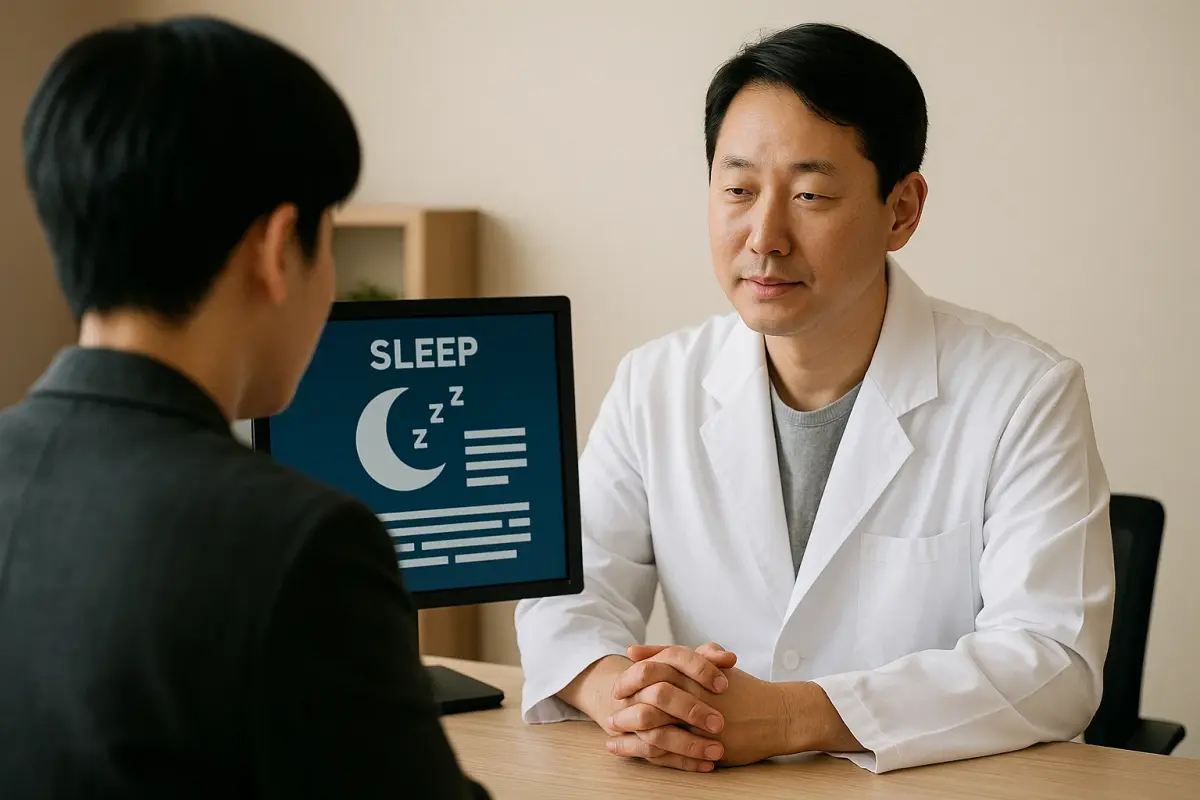
The Sleep Study Process: What to Expect
Many people feel nervous about undergoing a sleep study, but understanding the process can help ease these concerns. Here’s what typically happens during an in-lab sleep study:
- Preparation: You’ll arrive at the sleep center in the evening, typically around 8-9 PM.
- Setup: A technician will attach small, painless sensors to your scalp, temples, chest, and legs to monitor various body functions.
- Monitoring: Once you’re ready for sleep, the technician will monitor your sleep from another room.
- Morning departure: The study typically ends around 6-7 AM, after which you’re free to go about your day.
- Results: A sleep specialist will analyze the data and discuss the findings with you during a follow-up appointment.
Home sleep studies are also available for certain conditions, allowing you to undergo testing in the familiar environment of your own bedroom.
Transformative Health Benefits of Sleep Studies
The insights gained from a sleep study can be truly life-changing. Here’s how identifying and treating sleep disorders can transform your health:
Improved Cardiovascular Health
Untreated sleep apnea significantly increases your risk of high blood pressure, heart attack, and stroke. Diagnosing and treating this condition can dramatically reduce these risks and improve heart health.
Enhanced Mental Clarity
Quality sleep is essential for cognitive function. Treating sleep disorders can improve concentration, memory, problem-solving abilities, and overall mental performance.
Weight Management
Poor sleep disrupts hunger hormones and metabolism. Addressing sleep issues can help regulate appetite, reduce cravings, and support healthy weight management efforts.
Mood Stabilization
Sleep deprivation contributes to irritability, anxiety, and depression. Proper sleep promotes emotional resilience and improved mental health.
After years of struggling with unexplained fatigue and mood swings, my sleep study diagnosed moderate sleep apnea. Three months into CPAP therapy, I feel like a completely different person—energetic, focused, and truly rested for the first time in years.
Michael Reeves, Sleep Study Patient
Treatment Options Following Sleep Studies
Once a sleep disorder is diagnosed, various treatment options become available depending on the specific condition and its severity:
- CPAP Therapy: Continuous Positive Airway Pressure devices deliver gentle air pressure to keep airways open during sleep, effectively treating sleep apnea.
- Oral Appliances: Custom-made devices that reposition the jaw and tongue to maintain an open airway during sleep.
- Lifestyle Modifications: Changes in sleep habits, exercise routines, and dietary choices can significantly improve sleep quality.
- Medication: Prescription drugs can help manage conditions like narcolepsy, restless leg syndrome, and certain types of insomnia.
- Cognitive Behavioral Therapy for Insomnia (CBT-I): A structured program that helps identify and replace thoughts and behaviors that cause or worsen sleep problems.
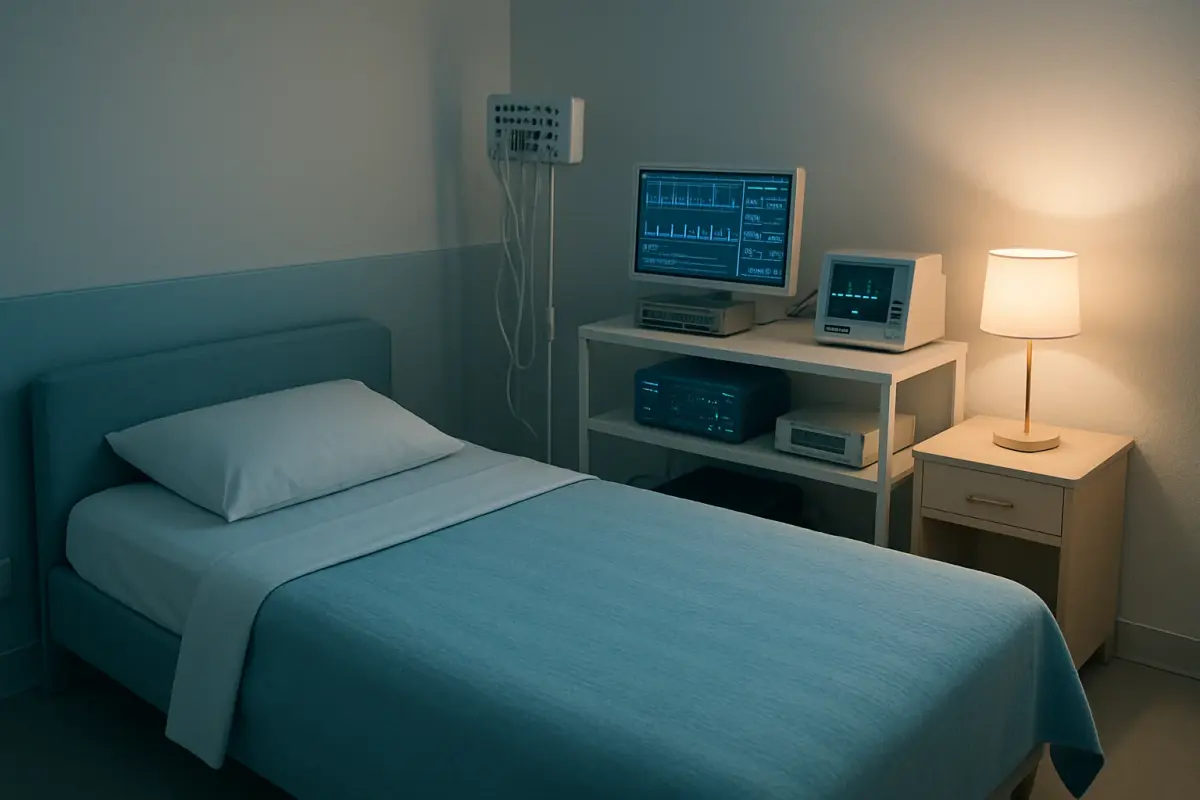
When Should You Consider a Sleep Study?
If you’re experiencing any of these warning signs, it might be time to discuss a sleep study with your healthcare provider:
- Chronic loud snoring
- Gasping or choking during sleep
- Excessive daytime sleepiness
- Persistent insomnia
- Morning headaches
- Difficulty concentrating
- High blood pressure
- Unexplained mood changes
Don’t dismiss these symptoms as normal fatigue or aging. Proper diagnosis through professional sleep studies can lead to effective treatment and significant improvements in your overall health and quality of life.
For more information about sleep disorders and their impacts, visit the National Sleep Foundation or the American Academy of Sleep Medicine. These trusted resources provide comprehensive guidance on understanding and preparing for sleep studies.
The Economic Impact of Sleep Disorders
Beyond personal health consequences, untreated sleep disorders have a substantial economic impact:
- Reduced workplace productivity
- Increased risk of workplace and motor vehicle accidents
- Higher healthcare utilization and costs
- More sick days and disability claims
Studies show that diagnosing and treating sleep disorders not only improves individual health outcomes but can also result in significant economic benefits for both patients and healthcare systems.
Preparing for Your Sleep Study: Tips for Success
To ensure your sleep study provides the most accurate results possible, consider these preparation tips:
- Maintain your normal routine: Try to follow your usual sleep schedule the day of your study.
- Avoid stimulants: Limit or avoid caffeine, alcohol, and nicotine on the day of your study.
- Bring comfortable sleepwear: Wear what you normally sleep in (as long as it’s appropriate).
- Pack personal items: Bring toiletries, medications, and anything else you need for your overnight stay.
- Complete pre-study paperwork: Fill out any required questionnaires about your sleep habits and medical history.
Conclusion: Investing in Your Sleep Health
Sleep studies are more than just diagnostic tools—they’re investments in your long-term health and quality of life. By identifying and addressing sleep disorders through professional sleep studies, you can experience profound improvements in your physical health, mental clarity, emotional wellbeing, and daily functioning.
You might also be interested in our related articles on Effective Insomnia Treatment Options and Complete Guide to CPAP Therapy. Many patients who undergo sleep studies find these resources helpful for their ongoing treatment journey.
Don’t let poor sleep continue to compromise your health and happiness. If you’re experiencing symptoms of a sleep disorder, speak with your healthcare provider about whether a sleep study might be right for you. The journey to better sleep—and better health—begins with proper diagnosis and targeted treatment.
Remember, quality sleep isn’t a luxury—it’s a fundamental pillar of good health that affects every aspect of your life. A sleep study might just be the transformative experience your body has been waiting for.
Frequently Asked Questions About Sleep Studies
Most health insurance plans cover sleep studies when they're deemed medically necessary. However, coverage varies by provider and plan. Check with your insurance company beforehand to understand your coverage and potential out-of-pocket costs.
In most cases, you'll need a referral from your primary care physician or a specialist. They'll evaluate your symptoms and determine if a sleep study is appropriate for your situation.
A standard in-lab sleep study typically involves spending one night (7-9 hours) at a sleep center. Home sleep tests usually monitor your sleep for 1-3 nights, depending on the specific protocol.
sleep study resultsGenerally, you should continue taking your prescribed medications unless specifically instructed otherwise by your doctor. Be sure to inform the sleep center about all medications you're taking.

